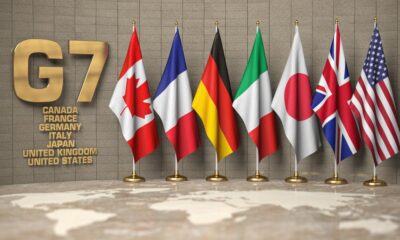The current situation in the European Union:
There is a growing conflict between right-wing nationalist parties and the judicial systems of EU member states. Recent court rulings targeting prominent far-right figures have sparked accusations of political persecution and calls for protest, highlighting a broader struggle over judicial independence, the rule of law, and the essence of democratic governance.
Key rulings intensifying the conflict:
The conflict has escalated due to several significant court decisions. In France, the Paris Criminal Court’s verdict against Marine Le Pen, leader of the National Rally (RN) party, resulted in a four-year prison sentence (two years suspended) and a five-year ban from holding public office. This ruling effectively sidelines her ahead of the 2027 French presidential elections. In Romania, the Constitutional Court’s decision prevented far-right figure Călin Georgescu from running in the 2025 presidential election due to alleged antidemocratic behavior and fraudulent campaign financing. In Germany, the Alternative for Germany (AfD) party has been classified as a threat to democracy by the domestic intelligence agency.
Reactions to the rulings:
The targeted parties and their supporters have responded defiantly. Marine Le Pen denounced the verdict as politically motivated and vowed to appeal. Other nationalist leaders across Europe, such as Viktor Orbán and Matteo Salvini, expressed support for Le Pen. The AfD in Germany has challenged the surveillance and classification decisions by the intelligence agency.
Impact on European politics:
The conflict reflects a broader debate within the EU regarding the rule of law. Liberal forces emphasize the importance of judicial independence and constitutional checks and balances, while conservative-nationalist voices argue that the concept is being weaponized to impose a political agenda.
Involvement of foreign actors:
Concerns about foreign interference, particularly from Russia, add complexity to the conflict. Reports suggest Russian efforts to undermine democratic processes in the West through disinformation and support for extremist parties. Prominent figures outside Europe, like U.S. Vice President J.D. Vance and Elon Musk, have also commented on the rulings.
Implications for the rule of law:
The clash poses a threat to the principle of the rule of law. When the judiciary is perceived as a political actor, trust in democratic institutions erodes. This erosion of trust could lead to further democratic backsliding and instability in European democracies.
Published – April 22, 2025 10:37 pm IST








































